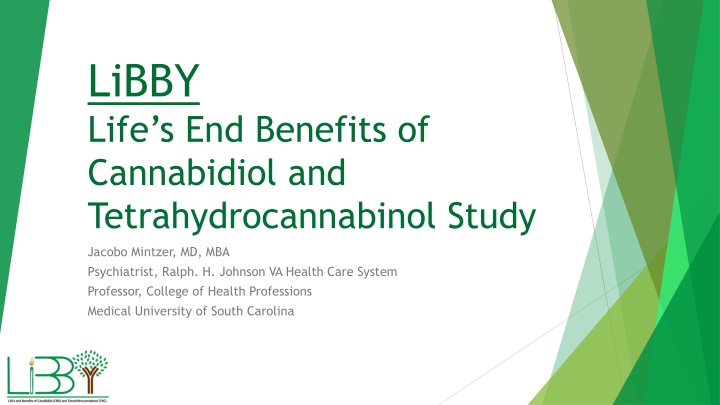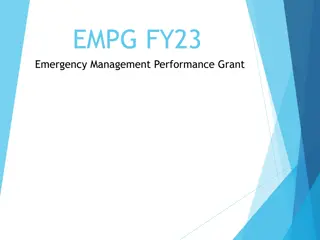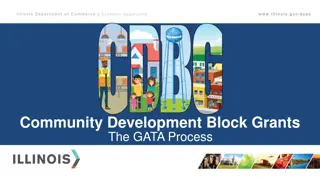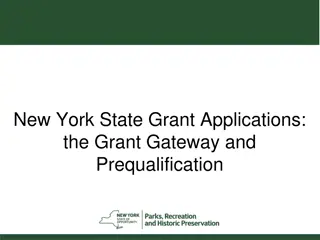
End-of-Life Care Challenges and Cannabidiol Benefits for Alzheimer's Patients
Learn about the challenges faced in end-of-life care for Alzheimer's patients, particularly in managing agitation, and explore the potential benefits of cannabidiol (CBD) in alleviating symptoms. This study delves into the current state of knowledge regarding hospice care, treatment options, and the need for evidence-based guidelines to improve patient outcomes. Discover the impact of common medications like antipsychotics, benzodiazepines, and opiates on patient comfort and quality of life.
Download Presentation

Please find below an Image/Link to download the presentation.
The content on the website is provided AS IS for your information and personal use only. It may not be sold, licensed, or shared on other websites without obtaining consent from the author. If you encounter any issues during the download, it is possible that the publisher has removed the file from their server.
You are allowed to download the files provided on this website for personal or commercial use, subject to the condition that they are used lawfully. All files are the property of their respective owners.
The content on the website is provided AS IS for your information and personal use only. It may not be sold, licensed, or shared on other websites without obtaining consent from the author.
E N D
Presentation Transcript
LiBBY Life s End Benefits of Cannabidiol and Tetrahydrocannabinol Study Jacobo Mintzer, MD, MBA Psychiatrist, Ralph. H. Johnson VA Health Care System Professor, College of Health Professions Medical University of South Carolina
Acknowledgements Funding: U.S. National Institute on Aging, Grant Number R01 AG068324-01 This project is being conducted in conjunction with the Alzheimer s Clinical Research Consortium (ACTC): Jacobo Mintzer, Olga Brawman-Mintzer, Brigid Reynolds, Michael Rafii, Paul Aisen Jeremy Pizzola Robert Rissman, Sara Abdel-Latif Rema Raman, Mike Donohue, Karin Ernstrom, Charlene Flournoy Jennifer Salazar; Alison Belsha; Neelam Kaul, Yuliana Cabrera Dorene Rentz, Ron Peterson, Cecily Jenkins, Kate Papp Jason Karlawish, Joshua Grill Gustavo Jimenez-Maggiora, Stefania Bruschi, Hongmei Qiu, Jia-shing So Michael Rafii, Alyssa Schmitt, Victoria Garcia Matthew Frosch, Bradley Hyman Sarah Walter Elizabeth Shaffer Joshua Grill, Rema Raman, Taylor Clanton Laurie Ryan, Kristina McLinden Krista Lanctot, Alan Lerner, Paul Rosenberg Leadership: Administration: Biomarker: Biostatistics: Clinical Operations: Clinical Outcome Inst: Ethics: Informatics: Medical Safety: Neuropathology: Program Administrator: Regulatory: Recruitment: NIA: Advisors:
Libbys Last Few Weeks of Life Treated by the Charleston Hospice Care Team Received standard hospice end-of-life care: Haloperidol Valium Morphine With treatment: Her agitation and confusion increased She developed severe pruritus and constipation She died in despair
The Current State of Our Knowledge Today, half of the patients suffering from Alzheimer s disease (AD) will use hospice care in the last days of their life. Most of them will present with moderate to severe agitation. In the absence of evidence-based guidelines, Hospice care eligible patients with Agitation and AD or other types of Dementia (HAD) are treated with a combination of antipsychotics, benzodiazepines, and opiates, which generate a variety of side effects. Agar, M. R., Lawlor, P. G., Quinn, S., Draper, B., Caplan, G. A., Rowett, D., Sanderson, C., Hardy, J., Le, B., Eckermann, S., McCaffrey, N., Devilee, L., Fazekas, B., Hill, M., & Currow, D. C. (2017). Efficacy of Oral Risperidone, Haloperidol, or Placebo for Symptoms of Delirium Among Patients in Palliative Care: A Randomized Clinical Trial. JAMA internal medicine, 177(1), 34 42.
Cannabidol (CBD) CBD is a non-psychoactive component of the marijuana plant. CBD indirectly modulates CB1 receptors, increasing CB1 activation and reducing pain. CBD binds to the transient receptor potential cation channel subfamily V, known to mediate pain perception, inflammation, and body temperature. CBD opposes the action of Tetrahydrocannabinol (THC), thereby muting the psychoactive effects of THC. CBD directly activates the hydroxytryptamine (5-HT1A) serotonin receptors and triggers an inhibitory response that slows down 5-HT1A signaling, thus having positive therapeutic effects on anxiety, appetite, sleep, pain perception, nausea, and vomiting.
Tetrahydrocannabinol (THC) THC has well documented psychoactive activity. THC activates cannabinoid receptors directly (mainly CB1 type). CB1 represses neurotransmitter release in the brain and regulates synaptic transmission. THC exert a broad effect on the regulation of emotion. THC use has been reported to decrease or modulate anxiety and fear-related behaviors in some people, as well as alleviate death cognition by preventing death-related thoughts from entering consciousness .
LiBBY Study Goal To develop safe and effective approaches for the treatment of Hospice care eligible patients with Agitation and Alzheimer s disease or other types of Dementia (HAD).
LiBBY Study Challenges Since this is one of the first studies targeting this population, HAD, and is the very first double-blind, placebo-controlled treatment study performed in the target population, there was little guidance available in the literature for key points in the study design: Definition of agitation Primary outcome measure Study duration Management of the placebo group Inclusion/exclusion criteria Obtaining investigational product (IP) Recruitment methods
Managing the Challenges Definition of agitation - We used the modified International Psychogeriatric Association (IPA) definition of agitation, which includes special provisions for hospice- eligible patients. Primary outcome measure Following the preliminary data, we will use the Cohen- Mansfield Agitation Inventory (CMAI). Study duration - Primary outcome at two weeks with a 12-week double-blind phase. Management of the placebo group - We will include subjects that remain agitated after standard treatment is provided. Inclusion/exclusion criteria Presence of agitation in a demented hospice care- eligible patient. Obtaining investigational product (IP) Canadian manufacturer who meets FDA Good Manufacturing Practice (GMP) Requirements. Recruitment methods Collaboration between Alzheimer s research groups and hospice care centers.
Preliminary Data This study is based on a preliminary, double-blind, placebo-controlled, cross-over study in a similar population using nabilone, a synthetic derivative of THC and a CB1 and CB2 partial agonist. The primary outcome measure was CMAI total score. Secondary measures included: Modified version of the Clinical Global Impression of Change (CGIC) scale Mini Mental State Examination (MMSE) Neuropsychiatric Inventory Nursing Home version (NPI-NH) total, agitation/aggression and its caregiver distress scores Pain Assessment in Advanced Dementia Scale (PAIN-AD) Mini Nutritional Assessment Short Form (MNA-SF). Study results showed positive outcomes on the primary measure and all secondary agitation measures, with a positive trend on global measures. Other measures showed no significant changes. In the current proposal, we chose to use THC and CBD oils because of the enhanced synergistic effects that the combination can provide while maintaining a low side effects profile.
LiBBY Study LiBBY is a 12-week, phase 2, multicenter, randomized, double-blind, parallel-group, placebo-controlled study in HAD, evaluating the efficacy and tolerability of a THC/CBD oral combination. A total daily dose of 8 mg of THC and 400 mg of CBD dissolved in digestible oil will be administered 2 times per day with a maximum of 4 mg of THC and 200 mg of CBD per dose.
Primary Objective & Endpoint Objective Evaluate efficacy and tolerability of THC/CBD oral combination in study population, HAD. Endpoint Study treatment will reduce symptoms of agitation as measured by CMAI compared to placebo at 2 weeks.
Inclusion Criteria Provision of signed and dated informed consent from participant or legally authorized representative As assessed by investigator, participant is likely to be able to comply with the protocol for at least 2 weeks Ability to take or be administered liquid medication Person of any sex/gender 40 years of age or older Meets DSM-V criteria for Major Neurocognitive Disorder Current clinically significant agitation as demonstrated by an Neuropsychiatric Inventory (NPI)-agitation subscale of 4 or above at Screening
Inclusion Criteria Cont Meets at least one of the following requirements: Currently enrolled in-patient or out-patient hospice care Score of 6D or more on the Functional Assessment Staging Tool (FAST) Score of 12 or more on the Advanced Dementia Prognostic Tool (ADEPT) Willing to agree not to use cannabinoids in any form (e.g., topically applied, ingested, inhaled, or other form of administration), other than the trial medication, during the first 12 weeks of the study In the opinion of the investigator, has an informant (may be paid or unpaid caregiver) who is able and willing to provide accurate information about the participant. Has a third-party clinician (hospice, palliative care, PCP) who is managing patient care. In the opinion of the investigator, resides in an environment suitable to conduct a clinical trial (i.e., study intervention can be administered and concomitant medication use can be accurately documented)
Exclusion Criteria Use of cannabinoids or other forms of marijuana in the 3 weeks prior to Baseline based on self-report Known allergic reactions, adverse reactions, or hypersensitivity to cannabinoids and/or components of sesame oil Treatment with another investigational drug of other intervention within the previous 30 days or five half- lives of the investigational product, whichever is longer
Conclusion We believe that the LiBBY Trial is an important, ground- breaking study. The development of the study design has been challenging. Many of the study design decisions were based on clinical experience. Therefore, many mistakes will be made. It has been, and continues to be, a difficult journey. But it is a worthwhile endeavor. This is for all the Libbys!!!






















